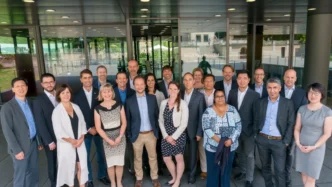Marathon Venture Capital, a seed-stage investor based in Athens, has raised a fresh €75 million fund, further cementing its role as a key player in the Greek tech boom. The latest capital injection brings the firm’s total assets under management to €175 million—a notable figure for a fund just eight years old and operating in a market historically overlooked by global venture capital.
The firm’s renewed momentum isn’t just about numbers—it reflects a string of successful exits and a broader transformation unfolding in Greece’s startup landscape. One standout exit was the $110 million sale of agtech startup Augmenta to CNH Industrial. Marathon also recently sold part of its stake in Hack the Box, a cybersecurity upskilling platform, in a secondary deal with Carlyle.
Ahead of a TechCrunch-hosted event in Athens, where Marathon partner Panos Papadopoulos will speak alongside Greece’s Prime Minister, he offered insight into what’s driving this new chapter in Greek tech.
Betting Early and Thinking Global
Despite global fundraising headwinds, Marathon raised its new fund on the strength of its early returns. According to Papadopoulos, the firm’s first fund ranks among the top percentile globally in realized returns. This success is largely due to Marathon’s knack for identifying trends before they become mainstream—investing in areas like AI-driven scientific research and defense technologies well before they gained widespread investor attention.
Their investment thesis is rooted in backing ambitious founders tackling complex challenges in significant markets. Whether it’s a PhD-led deep tech venture or a company navigating a niche but essential industry like power grid management, Marathon favors founders who bring unique insight and relentless execution.
Greece’s Global-First Startup Strategy
Contrary to outdated perceptions, Greek startups are not confined by their geography. Papadopoulos argues that most companies in their portfolio generate little to no revenue from the domestic market. Instead, they’re building from Greece but selling to the world—serving Fortune 500 clients with capital-efficient strategies and resilient teams.
This mindset is becoming the norm across Greece’s emerging tech ecosystem. “Capital efficiency and grit are second nature to our community,” Papadopoulos notes. This gives Greek founders an edge in a market where every euro must stretch further.
Exits Without Unicorn Pressure
In today’s climate, IPOs are rare and holding periods for venture-backed startups have extended. Yet Marathon isn’t chasing unicorns. The firm deliberately keeps its fund size small, invests early, and maintains significant equity stakes. This setup allows them to generate strong returns through strategic M&A or secondary sales, without relying on billion-dollar exits.
Even during the 2021 boom—when most VCs were delaying exits in hopes of higher valuations—Marathon executed secondary transactions. “In our culture, cash is king,” Papadopoulos says, emphasizing their practical, founder-aligned approach.
A Flexible Lens on Deep Tech and AI
Marathon, like many European VCs, is paying attention to deep tech and AI. But rather than box themselves into sector-specific investments, they focus on transformative founders who are reinventing industries. This outlook led them to back a defense startup even before the Ukraine conflict reshaped global views on defense innovation.
For Marathon, the label “deep tech” is fluid—it’s less about buzzwords and more about substance.
Geography Isn’t the Real Discount
While Greek founders have traditionally raised less capital than peers in Berlin or Paris, Marathon doesn’t see location as a limitation. Instead, they thrive on finding opportunities that other investors overlook. “We move fast with conviction and don’t wait to see who else is joining the round,” Papadopoulos says.
This non-consensus approach has allowed them to back strong teams at attractive entry points, enhancing return potential.
Preparing Startups for Every Outcome
With the IPO window largely closed, Marathon advises portfolio companies to build for sustainability first—“default alive” as they call it. But they also remain open to every possible exit route. In some cases, secondaries can give founders the breathing room needed to focus on long-term growth, and Marathon is typically supportive of such moves.
EU Grants Are Welcome—but Not the Priority
European startups have access to a growing pool of non-dilutive capital, but Marathon encourages its founders to stay focused on building for market demand rather than chasing government funding. “We welcome any such initiative,” Papadopoulos says, “but advise founders not to waste time on non-market-related activities.”
Greece’s Macro Picture Is Improving—But Talent Still Rules
While Greece’s economy has stabilized, Papadopoulos believes the macro environment only plays a small role in startup success. Instead, the defining strength of the Greek ecosystem is its talent pool. Interestingly, he notes that innovation often thrives in adversity—a principle that has defined many of Marathon’s most successful bets.
As U.S. VCs Pull Back, Europe Builds Its Own Momentum
With American investors retreating from European deals, some might expect syndicating rounds to become more difficult. However, Marathon sees this as a positive shift. The firm believes European startups should rely less on foreign capital and more on local conviction. “We must always count on ourselves,” Papadopoulos says, reinforcing Marathon’s independent and founder-first approach.












